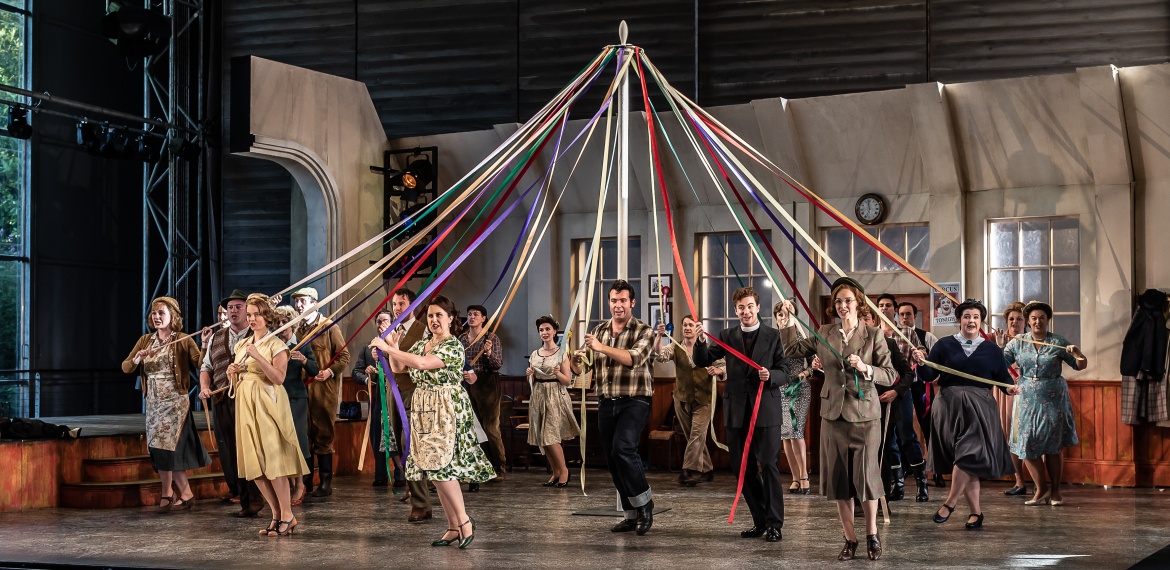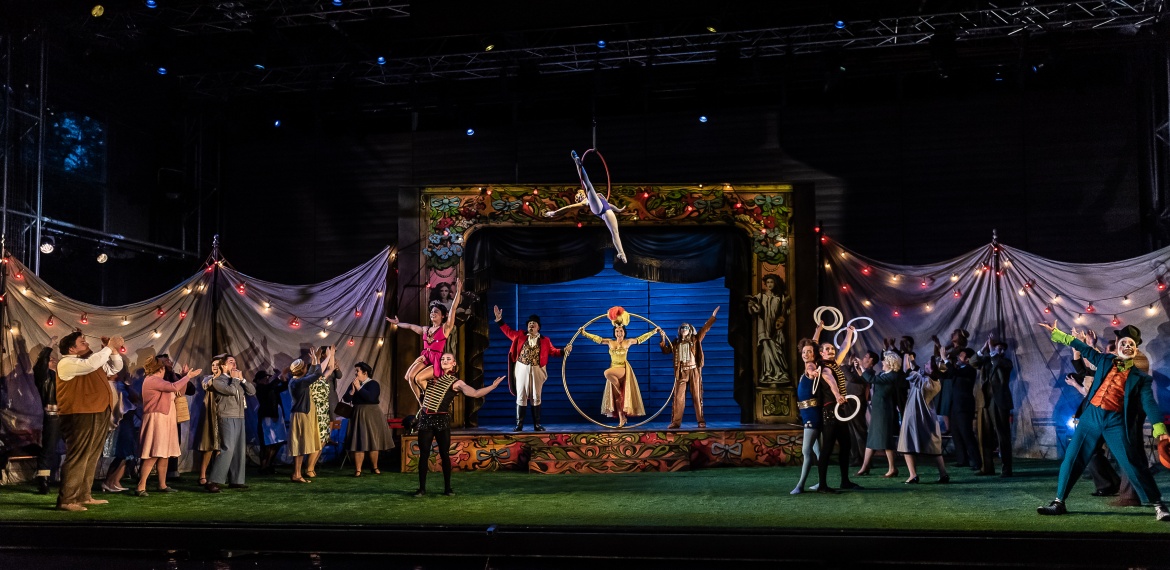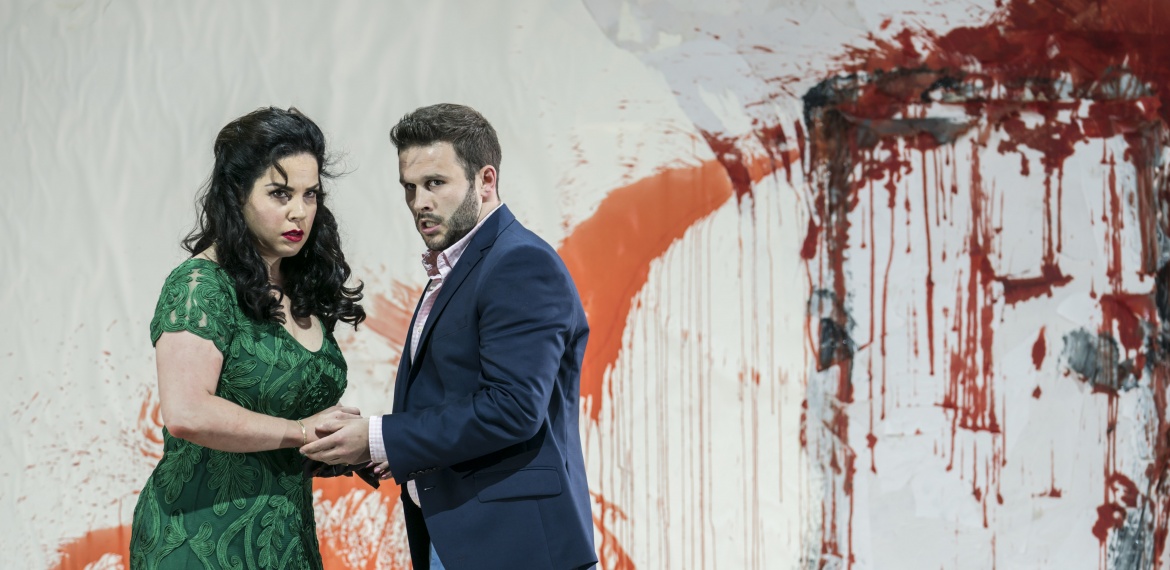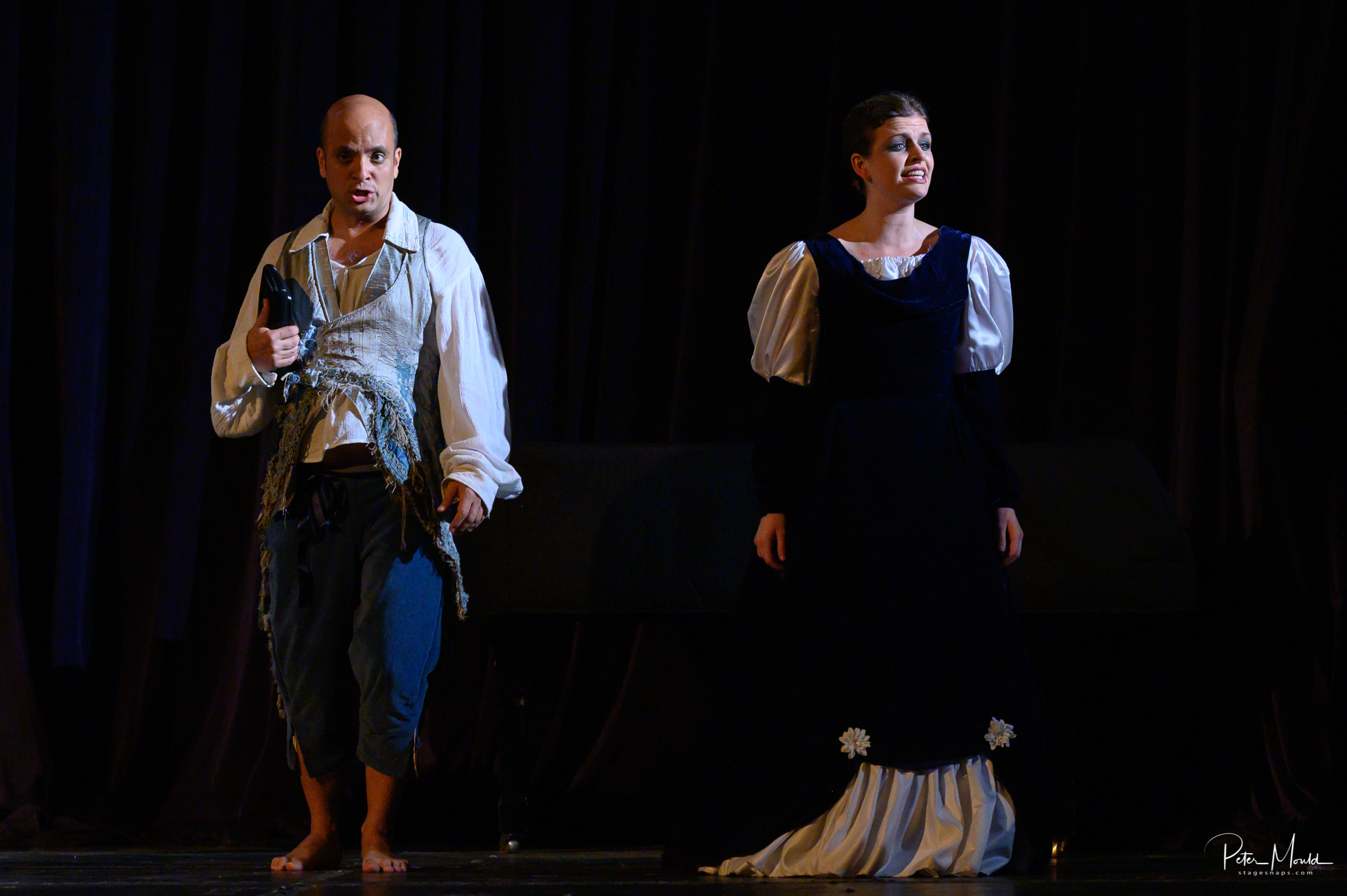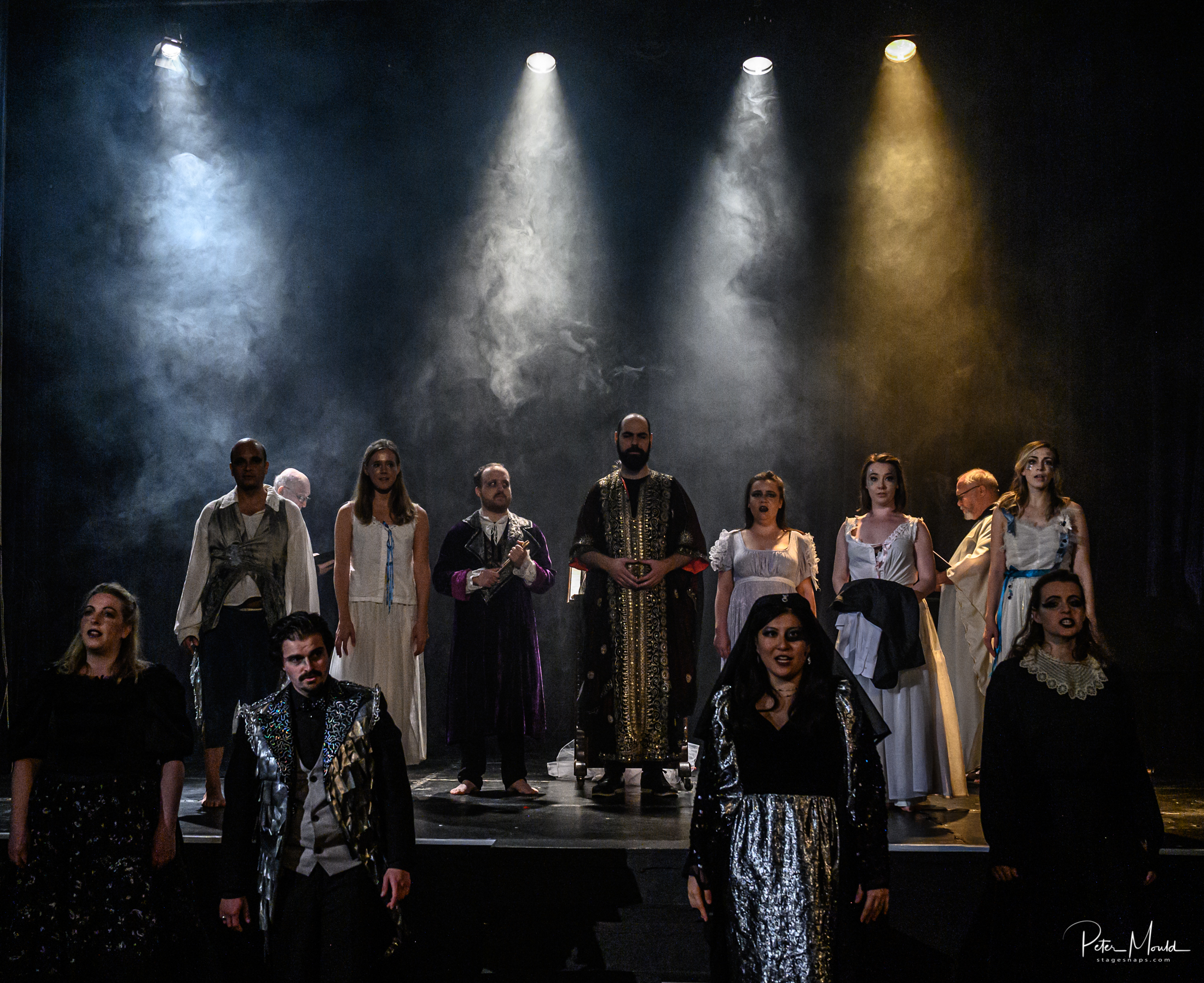Donizetti: Il Castello di Kenilworth
Orchestra & Chorus Donizetti Opera, Riccardo Frizza
DYNAMIC 37834
Issuing recordings of Donizetti operas is an admirable undertaking but one has to admit there really are a very large number of them. Il Castello di Kenilworth dates from 1829 and was not immediately successful though quickly overcame its original disappointment. The singing here is excellent – in particular the heroic tenor of Xabier Anduaga as Leicester – and the production is bland but never gets in the way of the music. Riccardo Frizza maintains a brisk approach throughout but I just wish I could tell the work apart from the many others which are fine in themselves but not quite on the level of Lucia.
Mendelssohn in Birmingham: Overtures
City of Birmingham Symphony Orchestra, Edward Gardner
CHANDOS CHSA 5235
This continues to be a highly engaging series and there is nothing problematic about this collection of overtures. If anything it goes out of its way to include lesser known works which are nonetheless more than worth seeking out. The Trumpet overture was new to me and Athalie is rarely heard. While the others are more familiar they are given lively and very immediate performances, certainly up to the standard of the earlier volumes.
Contemporaries of the Strauss Family – 4
Czech Chamber Philharmonic Orchestra Pardubice, John Georgiadis
MARCO POLO 8.225370
We hear so much from the Strauss family, particularly in the winter, that it is easy to forget they came from a world which was heady with dance music in a similar vein. Here we have scores by fourteen contemporaries any of whom can sit comfortably alongside more familiar music for a New Year concert. If some of the works stray into the early twentieth century then so did Lehar and Korngold, so we can easily forgive this collection of highly engaging pieces.
Marschner: Hans Heiling
Essen Philharmonic, Frank Beermann
OEHMS OC 976
I suspect that most of us know of Marschner only in terms of a foot note in a Wagner compendium. Here is the evidence which so much of that is based on. If anything Marschner seems closer to Wagner than Weber, particularly in the opening scenes which foreshadow Flying Dutchman and Tannhauser in the romantic sense of sturm und drang. If you don’t know any of Marschner’s works this is a good palce to start. The live recording does at times produce a more distant acoustic but this does not affect the listener’s enjoyment.
Strauss/Korngold: Eine Nacht in Venedig
Graz Philharmonic, Marius Burkert
CPO 555 235-2
This live recording is pleasing even if the work itself is rather light-weight and hangs almost entirely on the popular aria Komm in die gondel which returns at key moments. Possibly a souvenir of the live performance but not really a work to put alongside Strauss’ other operettas.
Finzi: By Footpath and Stile & other works
Finzi Quartet, Marcus Farnsworth, baritone, Robert Plane, clarinet, Ruth Bolister, oboe
RESONUS RES 10109
As a lover of Finzi I very much welcome this new recording which includes the Five Bagatelles and four other short works for small ensemble. Marcus Farnsworth’s beautifully lucid singing of By Footpath and Stile makes it worth seeking out anyway.
Elgar: Symphony No1
Radio-Sinfonieorchester Stuttgart des SWR, Roger Norrington
SWR 19520CD
This live recording from 1999 brings us Roger Norrington’s forthright and extrovert approach to the symphony, often driving tempi though never overextending the pressure. It is impressive. There is also a recording of the Overture to Die Meistersinger von Nurnberg which he takes at a real lick, getting through it in just over eight minutes!
Fritz Wunderlich: Music of the 20th century
SWR 19075CD
For those of us who think of Fritz Wunderlich essentially as a Mozartian – or at least a lyric tenor who sits comfortably within the classical/romantic framework, it comes as something of a surprise to find him hear recording works by Pfitzner, Stravinsky, Orff, Egk and Berg.
The three cds are taken from recordings made before 1960 and include songs by Fritz Naumeyer, Stravinsky’s Oedipus Rex and excerpts from Orff’s Antigonae and Oedipus der Tyrann, concluding with two extended extracts from Wozzeck. A fascinating collection to set alongside the more familiar recordings which have come down to us.
Beethoven: Christus am Olberge
Chorus Cathedralis Aboensis, Turku Philharmonic Orchestra, Leif Segerstam
NAXOS 8.573852
Leif Segerstam is not as familiar a figure in this country as was previously the case so it is all the more welcome to be reminded of his considerable talents as a conductor. This early oratorio was first performed in a lengthy concert which included the first and second symphonies alongside the third piano concerto, and is fairly conventional in its structure even if there are hints of a more operatic approach to the chorus writing and the sensitive solo part for Jesus. Good to have a new recording of this and the bonus is the rarer Elegischer Gesang from 1814.
Sibelius: Kullervo
Lunds Studentsangare, BBC Scottish Symphony Orchestra, Thomas Dausgaard
HYPERION CDA 68248
We hear the numbered symphonies so often they are almost over-familiar but the two other major works – which are both in effect symphonies, Lemminkainen and Kullervo – are rarer. This is particularly true of Kullervo presumably because hiring a Finnish speaking male choir is quite an undertaking. Not only is the work set in Finnish, it needs singers who understand Finnish to make a real impact – which it certainly does here. Thomas Dausgaard’s approach is bright, open and at times dangerously aggressive. A fine recording altogether.
Sibelius: Lemminkainen Suite; Spring Song; Suite from Belshazzar’s Feast
BBC Symphony Orchestra, Sakari Oramo
CHANDOS CHAN 20136
I don’t think anybody gives us better Sibelius at the moment than Sakari Oramo and so this new recording of the Lemminkainen Suite is very welcome. There is an intensity, not to say weight, even in the most lightly scored passages which brings emotional engagement and depth. It is good to find the Spring Song included as it is not frequently heard live and the suite from Belshazzar is a welcome addition.
Schubert: Works for solo piano Vol 4
Barry Douglas
CHANDOS 20086
Volume 4 brings us Piano Sonatas Op147 D575, Op164 D537 & Op120 D664
Of these three I find the Op164 the most engaging in the fluidity of its approach but all three are well worth seeking out and adding to an already fine series.
Bruckner: Symphonies 1-9
Bavarian Radio Symphony Orchestra, various conductors
BR KLASSIK900716 (9 CDS)
Most box sets are drawn together through a single artist – most often, with symphonic series like this, through the conductor – but here it is the orchestra itself which is the focal point with four different conductors who take an understandably idiosyncratic approach to the works.
Lorin Maazel conducts the first two, Mariss Jansons 3,4,7 and 8, Bernard Haitink 5 & 6 and finally Herbert Blomstedt for No9. The impact is exciting if only for the difference in approach given the continuity of tonal impact from the orchestra. A very interesting collection and one which presumably would pay dividends in other contexts.

